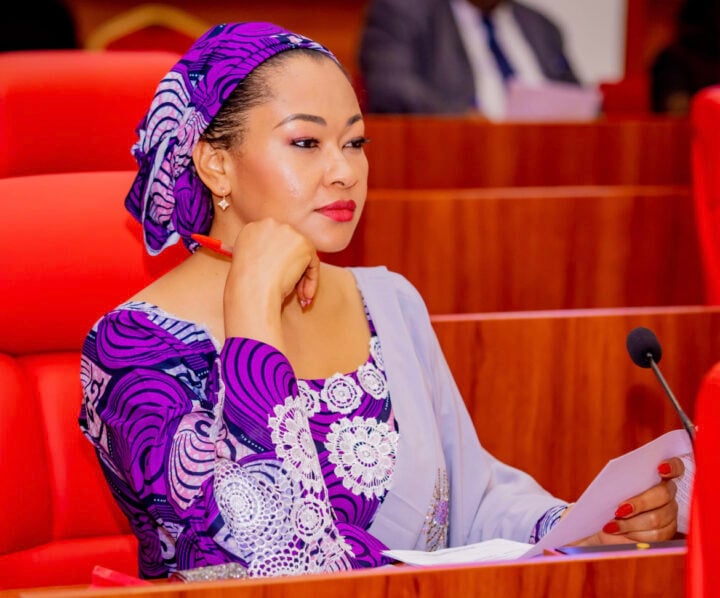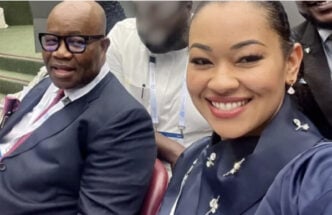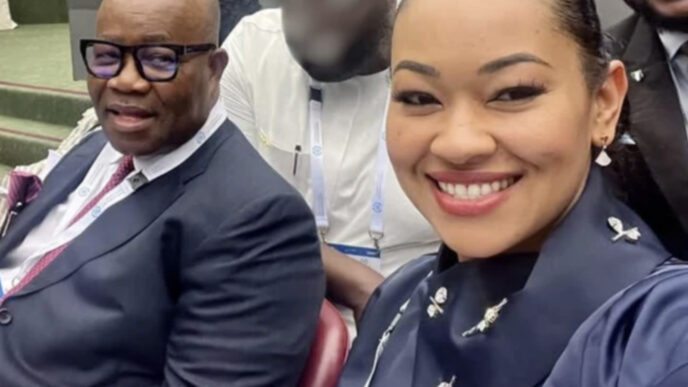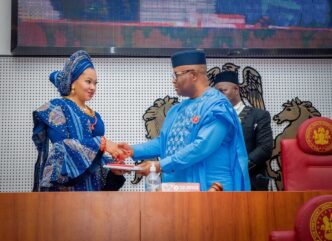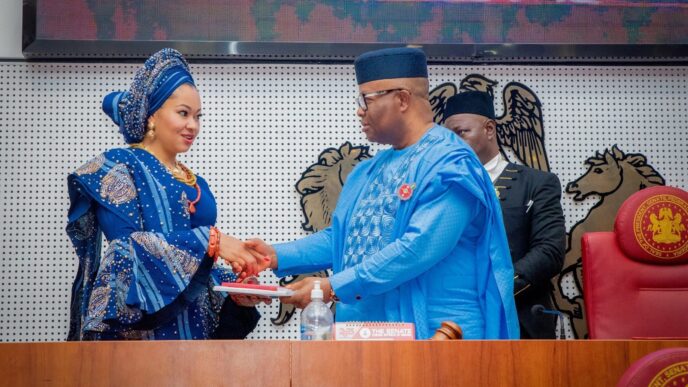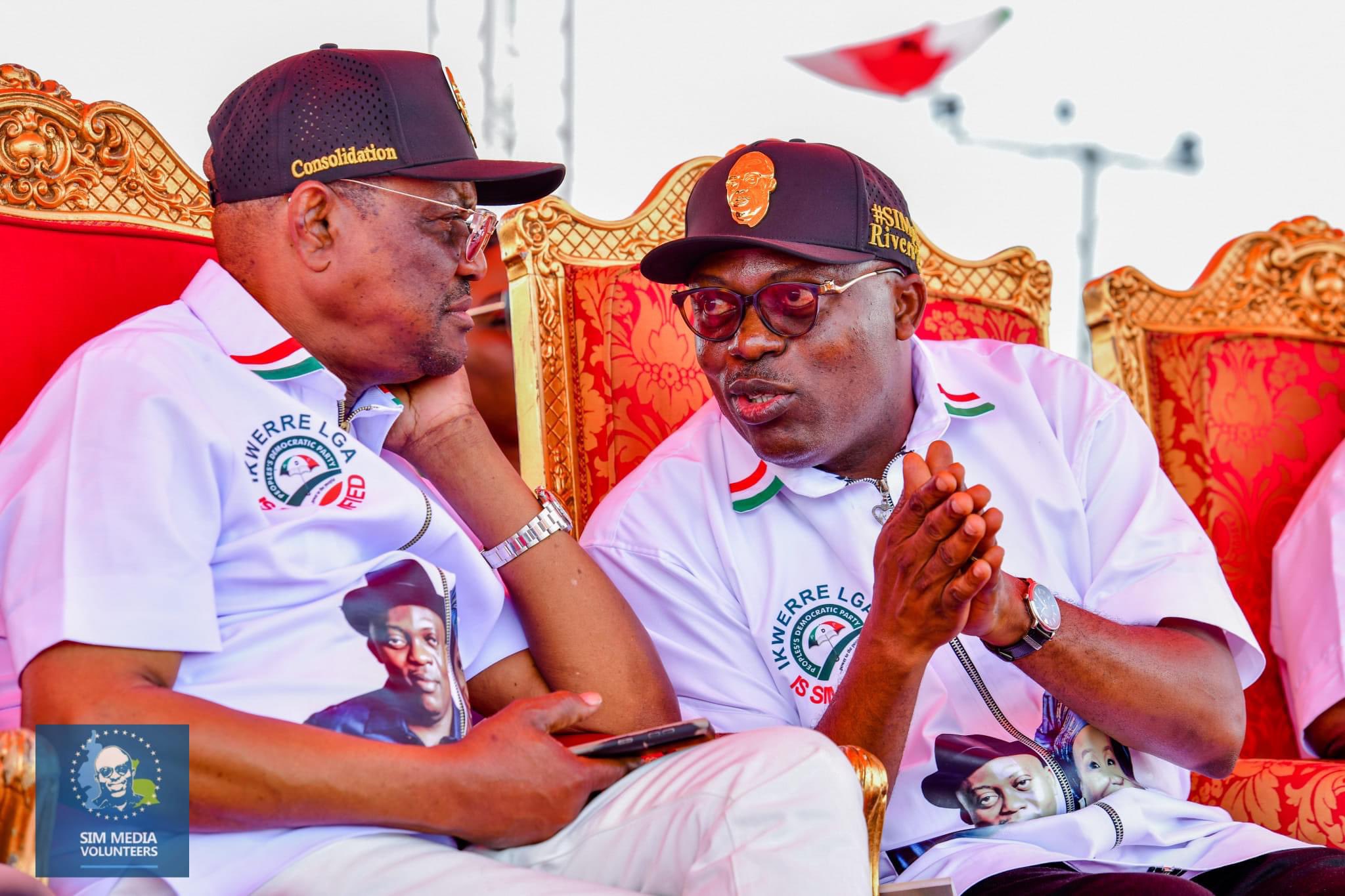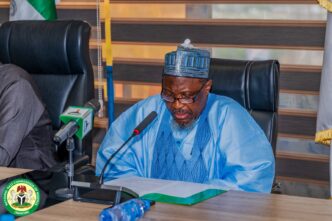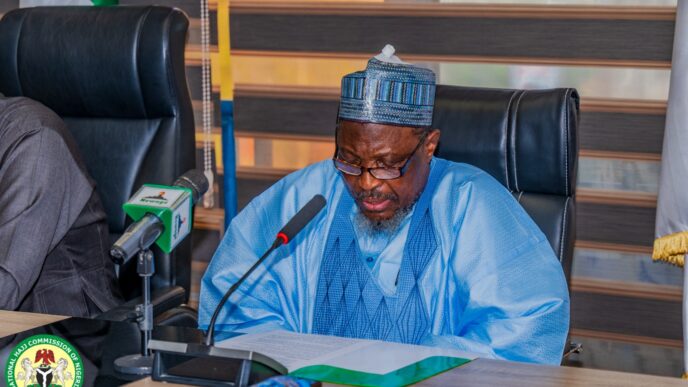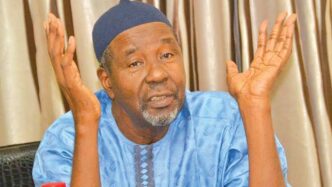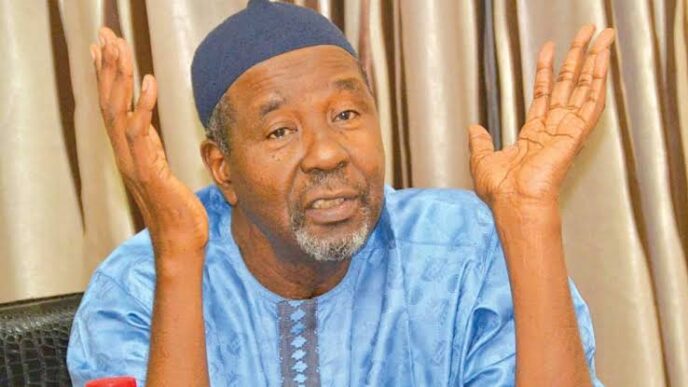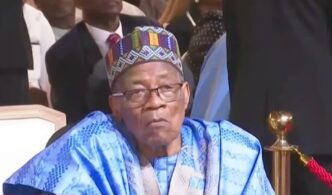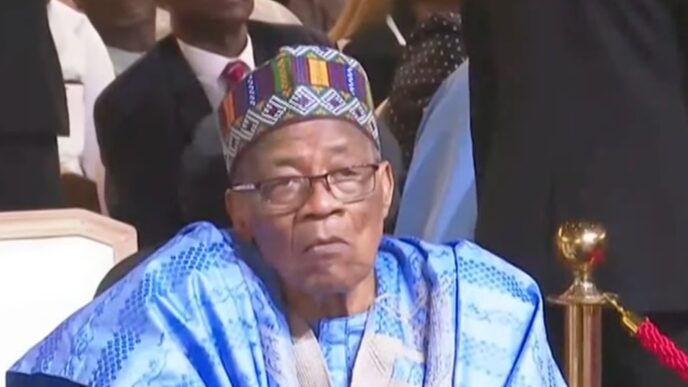Natasha Akpoti-Uduaghan
The politics of who gets a seat or where you sit is as old as politics itself. From the wars that have been fought on who sits on the throne to our traditions on who gets a seat in the “inner council”, is simply a tale as old as time. In every level of society, where you sit is not only significant but symbolic for representation, voice and presence. One of the biggest and successful bus boycotts in the history of the Civil Rights movement that challenged and led to the end of Segregation laws in the city of Alabama in the United States of America began with a seat. A soft-spoken woman, Rosa Parks, who was just tired and wanted to sit and rest while riding the bus, refused to give up a seat because of a segregation law.
The success and power of the Montgomery bus boycott, which changed a status quo which is referenced today, all started with a seat. It is therefore not surprising that in 2025 in Nigeria, the agitation of distinguished Senator Natasha Akpoti-Uduaghan over her seat allocation in the senate has brought back attention to important conversations ranging from a political system that excludes women and silences women to a bigger conversation on sexual harassment.
Can a senator be sexually harassed or abused by a fellow senator? Yes. Is an allegation of sexual harassment in the national assembly new? No. Anyone who thinks otherwise obviously exists on another planet and is complicit in abuse. Sexual abuse and sexual harassment are both gendered and power-based and are constantly wielded as a weapon to silence, exclude and undermine women in politics and different spheres of life. For clarity, sexual harassment is a form of gender-based violence, and it can manifest in different forms.
Sexual harassment can be as subtle as making unwelcome sexual and physical advances or sexual innuendos/comments to a woman, which others may find amusing, except the recipient of the comments. It ranges from sharing unwanted nudes and pornography to extending unwanted invitations that indicate ulterior motives, whispering lewd jokes and invading the intimate private space of a woman. It is also as embarrassing as improper comments about a woman’s looks, body or dress and the unwanted touching of bodily parts of a woman.
Advertisement
While both men and women are victims of sexual harassment, women are more vulnerable to sexual harassment because it is power-based and enabled by persisting gender inequality. As noted by the World Bank, “Gender-based violence is one of the most oppressive forms of gender inequality, posing a fundamental barrier to the equal participation for women and men in social, economic and political spheres.”
In addressing gender-based violence, a serious institution, people and country will; 1) respect the complaint of the person who experienced the harassment 2) provide a safe space for report, 3) investigate the report as a pathway to justice 4) ensure the accused is not the judge in the case in line with the principles of natural justice and, 5) punish perpetrators. This should be the major approach to allegations of sexual harassment at all levels.
For a senate created by the constitution and bound by its safeguards for fundamental human rights, playing politics and technicalities with a petition on sexual harassment disregards the constitution. Now the misconceptions; that a man loves his wife, daughter, and sisters does not mean he cannot be an abuser or harasser.
Advertisement
It’s just like saying that a thief won’t rob you because he has a brother or sister like you. That other women did not speak up does not mean that one who speaks up is lying; we all have different levels of courage. Lastly, historically, women in politics who face abuse do not speak up to avoid losing political capital or being victimised. The silence and acceptance of bad behaviour as a norm in politics has enabled impunity and bold abusers using their power to silence the few who dare to speak.
Nigeria, let us talk about the politics of exclusion and victimisation.
Nigeria’s journey to democracy was a hard-fought battle that was sustained by the resilience and unwavering spirit of men and women who believed in freedom and democracy. The transition to democracy in 1999 brought new hope to a nation that had been battered by men in uniform and had been silenced for too long. The ballot signified the power of the people to choose their leaders and the birth of Nigeria’s constitutional democracy. Nigeria’s 1999 Constitution, with its imperfections, perfectly enunciates Nigeria as a country to be governed on the principles of freedom, equality and justice. Section 14 of the Constitution establishes Nigeria as a State based on the principles of democracy and social justice.
However, in the almost 26 years of democracy, Nigeria has been consistently and conspicuously deprived of the benefits of representation of women in government at all levels, violating a basic principle of democracy. Women’s representation is a democratic rights issue because the exclusion of women is silencing women’s voices in political decisions. This prolonged exclusion has created a political ecosystem where sexual abuse and harassment of women have persisted, been excused, condoned and most times treated with levity.
Advertisement
Nigeria is still one of the poor-performing countries when it comes to political empowerment. The 2024 Gender Gap report of the World Economic Forum ranked Nigeria 136 of the 146 countries surveyed when it comes to closing the gender gap in political empowerment. With only 17 female legislators of the 360 legislators in the house of representatives and 4 female senators of the 109 senators elected in 2023, it is an injustice to treat allegations of sexual harassment with levity. Women in Nigeria are fighting both systemic exclusion and cultural and religious bias against female leadership. Nigeria cannot afford to ignore the call for safe spaces for women in both elective and appointive offices.
This is particularly important with the emergence of younger women in politics who are informed, aware of their rights and not limited by the fears of the oppressive hands of patriarchy. The national assembly is a place for the serious business of representation, law-making and oversight that requires competence, vibrancy, innovation, and experience. None of these are mutually exclusive, which is why we cannot tolerate the abuse of power and/or sexual harassment being used against existing and emerging leaders in the national assembly.
With the evolution of labour law, more companies, institutions, and places of work are introducing safeguarding policies. Nigeria’s national assembly and all government institutions, as a matter of urgency, need a safeguarding policy that properly provides a framework for the prevention of and protection from sexual exploitation, abuse and harassment.
The national assembly remains the hub of our democracy, and protecting legislators, staff and citizens who work and interact with the Institution from abuse, harassment and exploitation should be at the core of the assembly. In March, which is dedicated to recommitting the world to efforts geared at promoting the rights of women and girls, the Nigerian senate has an opportunity to show Nigerian women that they do not hate women.
Advertisement
Cynthia Mbamalu is a human and gender rights advocate and the director of programmes at Yiaga Africa
Advertisement
Views expressed by contributors are strictly personal and not of TheCable.
Add a comment

